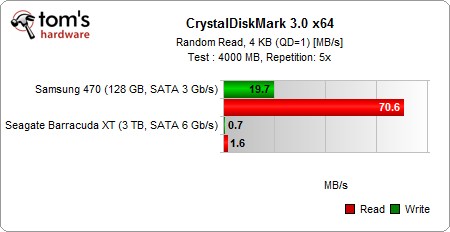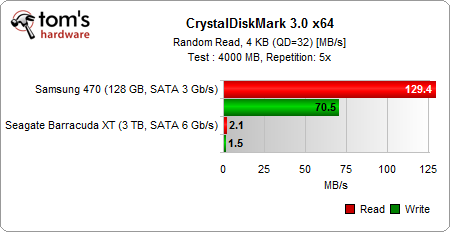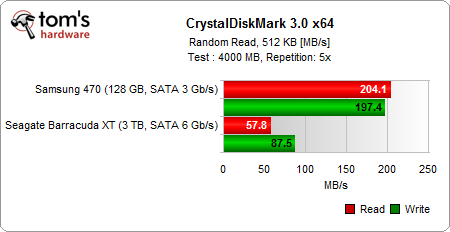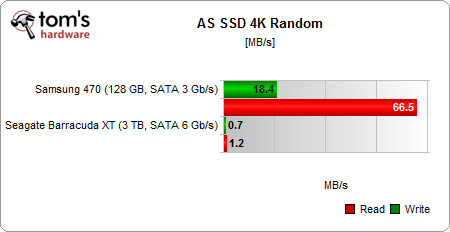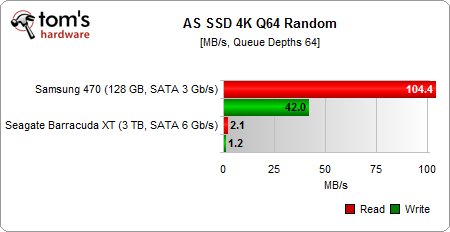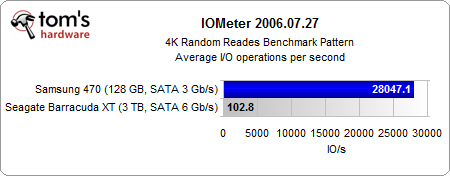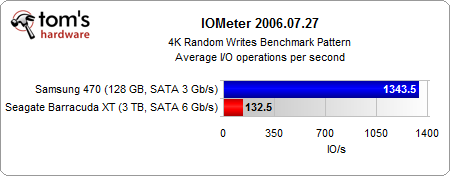Should You Upgrade? From A Hard Drive To An SSD
Should you buy a new processor for your next machine? How about a new graphics card? Have you given any thought to the status of your storage subsystem? We're making a case for incorporating solid-state technology the next time you're upgrade-shopping.
Benchmark Results: Random Read/Write
The following results are highly relevant for booting an operating system like Windows. The real-world differences between a hard drive and SSD probably won't be as pronounced as these more synthetic results, but they're still very noticeable.
According to CrystalDiskMark, the hard disk deals with 4 KB random blocks at a mere 1.6 MB/s, while the SSD writes at 19.7 MB/s and reads at 70.6 MB/s.
Performance improves with a deeper command queue, which more completely saturates the SSD's multi-channel architecture. The hard drive also demonstrates a performance gain thanks to re-ordering of operations through NCQ, but the boost is much smaller.
For large block sizes (512 KB in this benchmark), the hard disk is able to achieve much better performance than we've seen. But the SSD is operating close to its performance limit; a faster drive based on 6 Gb/s-capable hardware would put more distance on the Seagate disk.
It’s crystal clear: subjected to random 4 KB blocks, the hard disk delivers a mere 700 KB/s compared to the SSD’s 18.4 MB/s.
At a queue depth of 64 (that is, with 64 commands pending), the SSD is 40 to 50 times faster than the hard disk.
Iometer shows that the 128 GB Samsung 470 can handle 28 000 I/O operations per second. The hard disk’s value of 102 operations per second seems incredibly slow in comparison.
Get Tom's Hardware's best news and in-depth reviews, straight to your inbox.
Repeating the same random test for write operations illustrates the drawback of SSDs, which have to read, erase, and rewrite blocks in order to write data to flash memory. Be that as it may, the SSD is still ten times faster than the hard disk.
Current page: Benchmark Results: Random Read/Write
Prev Page Benchmark Results: Sequential Read/Write Next Page Benchmark Results: I/O Performance And Access Times